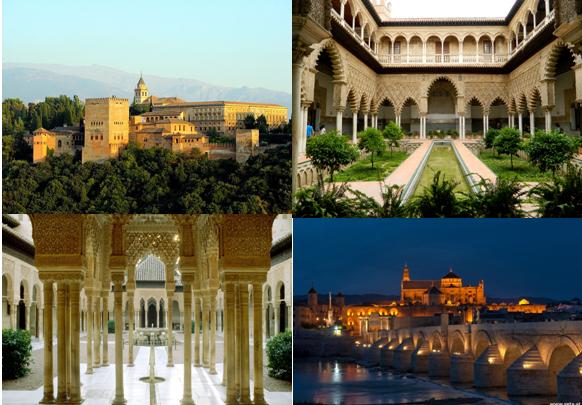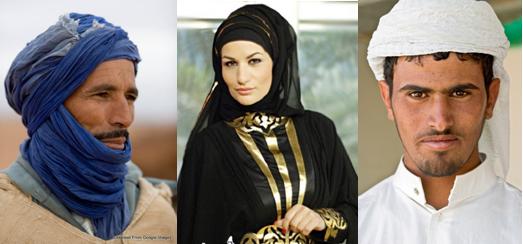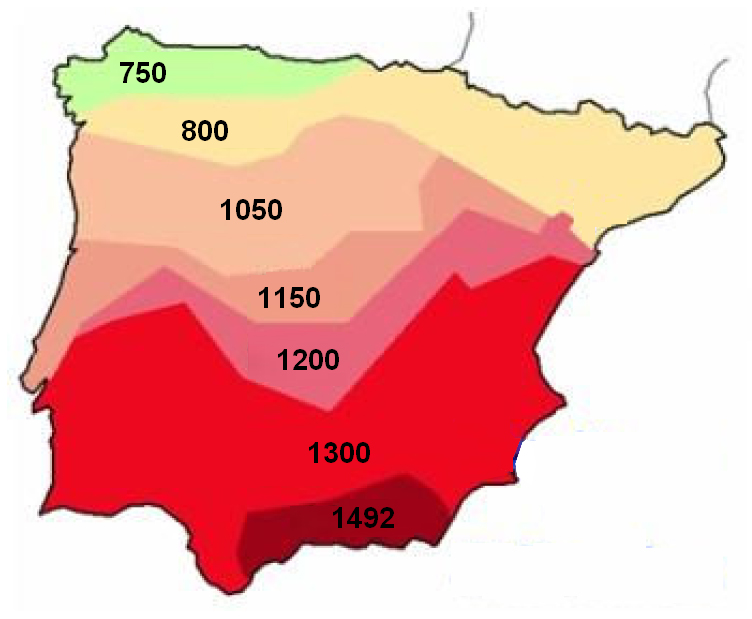|
A. Understanding the Spanish Context Recently I have just read an Indonesian book titled “Islam di Spanyol” (Islam in Spain) written by my old friend, Ryan Mayer. The topic of Muslim civilisation in Spain becomes familiar to me again as it was when I was fascinated by the remarkable achievements of medieval Muslim civilisation in junior high school. I’m interested in writing this short article since I see that although Ryan described extensively about the political dynamics in Islamic Spain in his book, he did not make a conclusion of why Muslim civilisation in Spain eventually collapsed. Moreover, books that focus on the demise of Muslim Spain are indeed quite difficult to find in the market. I myself believe that in the collapse of Muslim civilisation in Spain, there are valuable lessons for every Muslim. Anybody having attention to Muslim history most probably would know that Islam was present in Spain for 900 years long, started with the arrival of Muslim conquerors in 711 AD and ended with the expulsion of the Moriscos (Muslims converting to Christians) in 1609 AD. While Europe fell into the Dark Age, marked by the absolute power of the church, the slowdown of intellectual and cultural growth, and the lack of good sanitation afflicting European cities, culture thrived in Muslim Spain. Streets were paved and lit with lanterns along the way. Public baths, hospitals, schools, universities, libraries, palaces and mosques were built everywhere in Spanish lands under Muslim rule. Muslims did not come to Spain on their own initiative. Rather, they were first invited by Julian, a Vandal lord, who despised the reign of Roderick, a Visigothic lord, who ruled most of pre-Islamic Spain. Rumors had it that Julian’s daughter had been raped by Roderick. However, if we take a look at present Spain, there is only a few, if not none, that could hint at Islam being a living integral part of Spanish culture. The myriads of mosques once to be found on Spanish soils have been turned to other functions. Muslims also number only a few in modern Spanish population. Out of 40 million residents in Spain, Muslims only number 1 million, of which native Spaniards are only between 20.000 and 50.000 people. These things seem to contradict Muslim presence in the Iberian peninsula for nearly a millennium. So, what has brought collapse to Muslim civilisation in Spain? Also, what has made its perishing so successful? B. Causes of Collapse and Vanishing Before we answer the aforementioned questions, I take you to have a look at Spain’s geographical situation first. Spain has always been located on the tip of Christian-dominated Europe, a continent separated by sea from the Muslim-dominated North Africa, the Middle East, and northern South Asia –a continuum from West to East. It can be understood by itself that the presence of any foreign element on the fringe of Europe, moreover Islam, will be subject to constant pressure from the region’s Christian powers. Thus if any Muslim rule was about to establish itself in Spain permanently, it must make sure that it should always remain strong to repel the region’s battering Christian forces. Also, given Spain’s geographical situation, not all Islamic empires could reach Muslim Spain. The nearest back up was the Muslims in North Africa who were still separated by sea. The never-ending presence of a strong support would have been required to ensure the everlasting presence of Muslim civilisation in Spain. This support would assist Spanish Muslims should they fall under heavy siege from the enemies. When Muslim Spain collapsed, all those requirements were no more fulfilled. There are 4 factors that I view contributing to the demise of Muslim Spain: 1. Consolidation of Spanish Christian Kingdoms When Muslims first entered Spain, spanish christian kingdoms were weak. They fought each other for supremacy over Spain. Therefore Muslims could conquer Spain rather easily and enjoyed a period of peace during their early residence in Spain, in spite of internal conflicts in Muslim community itself. Although later they still fought each other, spanish christian kingdoms began to consolidate over time. One way is by doing royal marriages. A well known marriage is between king Ferdinand II of Aragon and queen Isabella I of Castile who brought end to the last Muslim government in Spain -the Emirate of Granada- in 1492 AD. 2. Conflicts Within Muslim Community Since its first establishment in Spain, Muslim community had been a tapestry of different ethnic groups, which unfortunately turned out to become the source of conflicts along Muslim history in Spain. In Muslim Spain, there were Berbers, North African Muslims who made up the majority of the soldiers in the conquest of Spain. Due to their participation, they claimed for rule in the conquered Spanish lands. There were also Muladis, Spaniards who converted to Islam or married with Berbers or Arabs. They did not only consist of common people, but also Spanish noblemen. Spanish noble muladi families were such as Banu Angelino, Banu Sabarico, Banu Qasi, and Banu Qabturno. They were the majority in the population of the occupied Spanish lands. They viewed that they deserved the rule of Spain, since Spanish soils were actually theirs. There were also Arabs, who despite being a minority were an elite ruling class. They were often despised by the other groups for allegedly regarding themselves superior and trying to retain the rule of Muslim Spain with themselves. Under Arabs-led governments, the Berbers and Muladis became second class citizens. Although Spanish Muslim civilisation produced remarkable achievements on one hand, it was often coloured by this kind of ethnic disputes on the other hand. When one family from a group rose to power, the other families would challenge them. Several solutions had been attempted, such as alternate leadership for a limited period of time by different families. However, not all families turned out to abide by this agreement. Until the end of Muslim history in Spain, leaders election and leadership succession were still problems in the Muslim community. Democracy, whereby leaders were appointed by means of popular vote, was still an unknown concept at that time. The diverse Spanish Muslim groups could only be united when a strong foreign Muslim power, such as the Umayyad, the Almoravid, or the Almohad dynasty, came to conquer and seized rule from everyone. When this foreign power disappeared, Spanish Muslims fell back into conflicts. 3. Conflicts Among Spanish Muslim Governments Probably deceived by the peace they enjoyed, the Muslim governments, appearing in forms of taifas, forgot that they actually had common foes -the Christian kingdoms in the North- which would expand and reclaim their territories whenever possible. Muslim governments also did not regard that they stood on an equal ground and focus on working for the prosperity of their people -All of which could have led to the establishment of a Muslim confederation. Instead, each tried to be the most prominent in the region by carrying out monumental construction projects and overrunning the other Muslim governments, often by asking for assistance from the Christian kingdoms. Again, these disgraceful acts perished only when a unified government run by a foreign Muslim power took place. 4. Disappearance of A Strong Supporting Power From point 2 and 3 we know that the presence of a strong foreign power was always required to establish unity within the Muslim community and the different political factions in Spain. Even if the local Spanish Muslim governments had united, this strong foreign power would have been needed to provide a support when advancing enemy forces came to their gate. Unfortunately the last foreign dynasty to rule Muslim Spain, the Almohad, fell in 1269 AD with the assassination of its leader, Idris II Al-Wathiq. After that, the Reconquista, a process of reclaiming Spanish lands by the Christian kingdoms from Muslim rule that had started centuries earlier, went unstoppable. After the Emirate of Granada succumbed to the might of the allied Christian kingdoms, the fate of Spanish Muslims were left to the Christian hands. Almohad’s replacing dynasty in North Africa, the Merenid, did not have enough power to recapture the entire Spain from the Christian kingdoms, which were already strong at that time. Reinforcements from distant Muslim empires, such as the Ottoman Empire, could only launch assaults to Spanish coastal areas too. They could not go so far into Spanish heartlands. The fall of Muslim rule in Spain was eventually sealed.
If a civilisation falls, does it necessarily mean that all of its traces vanish? No. So why do traces of Muslim civilisation in Spain perish? The answers to this are provided in the 2 points below. 1. Rare Presence of Natives-run Muslim Governments Although the Muladis represented the largest populace in Muslim Spain, Muslim governments were not headed by them. This is due to the fact that the first Muslim government was established by foreigners who conquered Spanish soils: the Arabs and Berbers. As a consequence, the Arabs and Berbers regarded that they deserved the prize of this conquest: rule over Spain. The Muladis were only able to rule when they succeeded in their coup d’etats against the ruling parties, such as in the case of Banu Qasi that seized rule of Upper Ebro region. However, Muslim governments headed by Muladis was not a wide spread phenomenon. Even if it is often said that Muslims of different ethnic backgrounds intermarried in Muslim Spain, it seems that it did not go in such a rate that could totally blur ethnic distinction in the Muslim community. Some people still thought that they deserved rule of the occupied territories more than the others due to their ethnicity. This type of government, run for Muladis by non-Muladis, rather than for Muladis by Muladis, is what I suppose has made Spanish Muslim governments viewed by Spaniards of that time as being colonialistic and alien to some degree, because their relative Muladis could not be masters in their own homeland. Acts to eliminate everything foreign could appear in every nation of this world, whenever an anti-foreigner sentiment erupts amidst the community. 2. Eradication by Spanish Monarchs When the Emirate of Granada was defeteated in 1492 AD, its leader, Muhammad XII alias Abu Abdillah secured an agreement, The Treaty of Granada, with King Ferdinand II and Queen Isabella of Castile to protect the religious freedom of the Muslims now living under Christian rule, known as Mudejars. However this agreement was short lived. Soon Cardinal Cisneros burned Arabic books and forced Muslims to convert to Christianity, which caused the First Rebellion of Alpujarras in 1499 AD. In 1502 AD, Queen Isabella I officially asked all Muslims in the kingdom of Castile to convert to Christianity or exile. King Charles V took the same act to Muslims in the kingdom of Aragon in 1526 AD. While some Muslims exiled, many chose to convert to Christianity. They were known as Moriscos. However, they were often subject to suspicion from their fellow Christians for practicing Islam in secret. This was probably influenced by the issue of some fatwas, such as that from the Grand Mufti of Oran in 1504 AD, that explained that Muslims were allowed to eat pork, drink wine, or do other forbidden things to hide their true identity (known as taqiyya) in the face of imminent threat. Many Moriscos then became targets for Inquisition, a Christian trial to investigate the actual religious practices of the suspected Christians. Its punishments range from imprisonment, torture, to burning at the stake, known as auto da fe. Despite being Christians, many Moriscos still used Arabic language, dress and performed Arabic customs. To assimilate the Moriscos better into the Spanish Christian society, in 1567 AD King Phillip II of Spain reasserted the prohibition for practice of Islam and forbade the use of Arabic language, names, dress, customs, as well as instructed the surrender of Morisco children to be educated by Christian priests. Some Moriscos who were indeed secret Muslims carried out the Second Rebellion of Alpujarras and the Morisco Revolt in 1568. Following these, King Phillip III of Spain issued the Edict of Expulsion in 1609 AD to finally expel all Moriscos from the kingdom of Spain while confiscating their properties. This closed the presence of significant Muslim population in Spain. Struggling with Muslims in their homeland along the course of their history, the Spaniards were the only Western nation not to participate in the Crusades launched to seize Jerusalem from Muslim hands. C. Conclusion I know that many modern Muslims dream to be united under a single caliphate as they were in the past. However, the more I learn about Muslim history, the better I understand that the only Muslim caliphates free of any profane contaminations were the first four Muslim caliphates, run by the fellows and direct students of Prophet Muhammad himself. Since the last caliphate was brought down by a coup d’etat, the following caliphates fell victim to greed, political intrigues, ethnic discrimination, and corruption despite their great accomplishments. These were also the diseases that have eventually torn down Muslim civilisation in Spain. Finally, I believe, it is not unity under a single caliphate per se that would restore Muslims to world domination again as in the Middle Age, but values like hard work, fairness, ethnic equality, democracy, education, and good morality –some of which had been prescribed by the Prophet himself in his Last Sermon before he died.
0 Comments
|
TOPICS
All
MONTHS
December 2019
|



 RSS Feed
RSS Feed